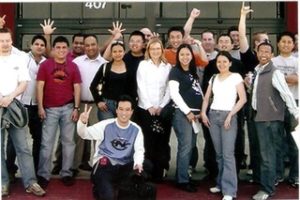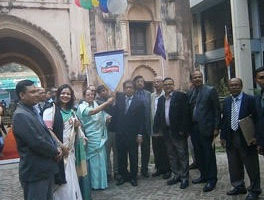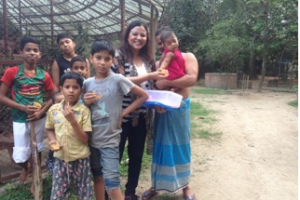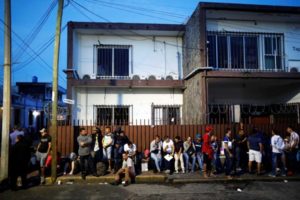Handcuffs during pregnancy, separation from newborn babies, and insufficient care for elderly inmates are among the abuses suffered by women incarcerated in Japan, Human Rights Watch said Tuesday.
Female inmates are sometimes shackled during labour and immediately after birth, the international NGO alleged in a new report, based on interviews with nearly 60 formerly jailed women.
Japan’s ministry of justice denied some of the claims, saying that restraints are ‘not used when imprisoned women are breastfeeding, holding, bathing, or changing the baby’s diapers,’ according to the report.
It also said that ‘appropriate medical measures are taken for prisoners.’
The justice ministry’s correction bureau told AFP they would ‘refrain from commenting’ on the report.
Related Coverage:
› Japan PM unveils $113b stimulus
› One in 10 Japanese are older than 80: govt data
According to HRW, new mothers also often have their babies taken away from them soon after birth.
‘Many women imprisoned in Japan suffer serious human rights abuse and mistreatment,’ the rights group said.
Nearly 4,000 women were behind bars in Japan as of 2021, mostly over theft and drug-related offences.
According to justice ministry data, only three out of 184 women who gave birth while incarcerated were granted access to their babies in prison between 2011 and 2017.
‘Separation at birth can be traumatising and harm the health of both the mother and infant and can interfere with breastfeeding and parent-child bonding,’ the NGO said.
While the law permits mothers to ask to keep their children with them for at least one year, prison authorities ‘rarely inform’ women of that right, HRW said.
In Japan, pregnant prisoners are typically taken to a hospital to give birth, but they are generally handcuffed before entering and after exiting the delivery room, the justice ministry told HRW.
This means Japan ‘has not met the international best practice’, the group said.
At one prison in Saga region, in southwestern Japan, inmates interviewed by HRW said that women were handcuffed even as they gave birth, contravening a 2014 government notice against the practice.
According to HRW, the justice ministry denied this allegation, saying that it had ‘found no record’ of women being handcuffed inside delivery rooms after 2014.
HRW also said the prison system ‘does not cater for the needs of the increasing number of older people’, warning of bullying by cellmates and guards frustrated with some prisoners’ limited mobility.
Japan’s prison population has aged rapidly in recent years, especially its female prisoners.
Government figures show 20 per cent of women admitted to prison in 2021 were 65 or older, compared to 13 per cent of men.
‘Some older women repeatedly commit non-violent crimes such as shoplifting because of social isolation and loneliness,’ HRW said.
Other problems detailed in the report range from poor prison healthcare to punishment through solitary confinement and mistreatment of transgender inmates.
According to HRW, many women convicted of petty crimes are being imprisoned only because Japan lacks alternatives such as community service.
‘Japan should consider alternatives to imprisonment while moving to decriminalise simple drug-related violations,’ said HRW Asia program officer Teppei Kasai.






















